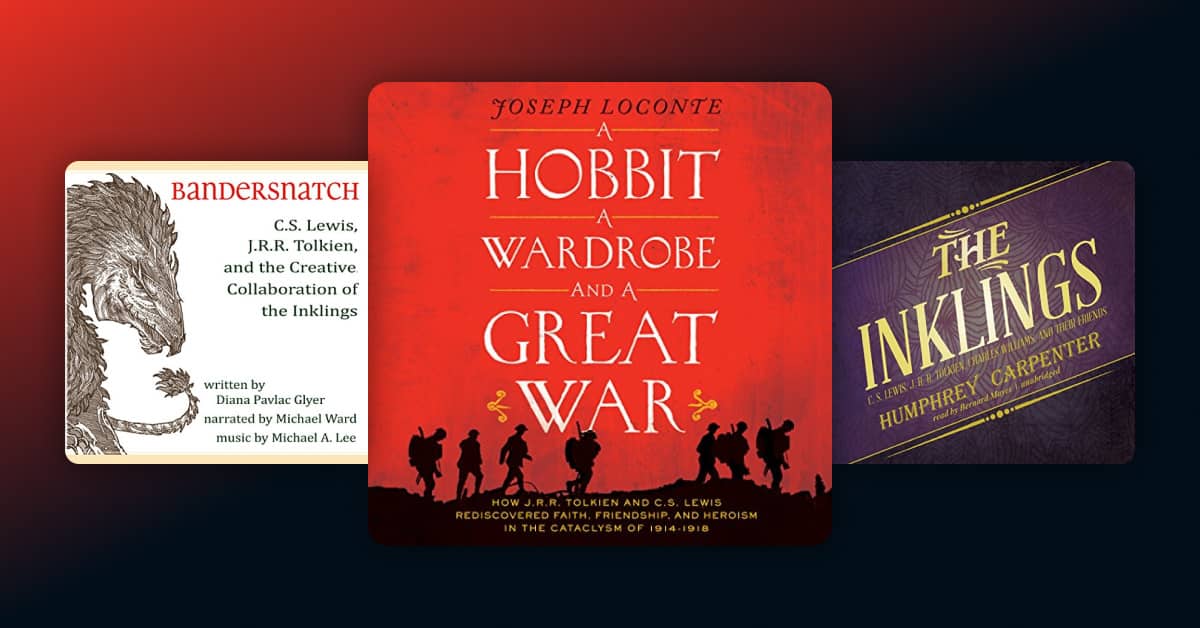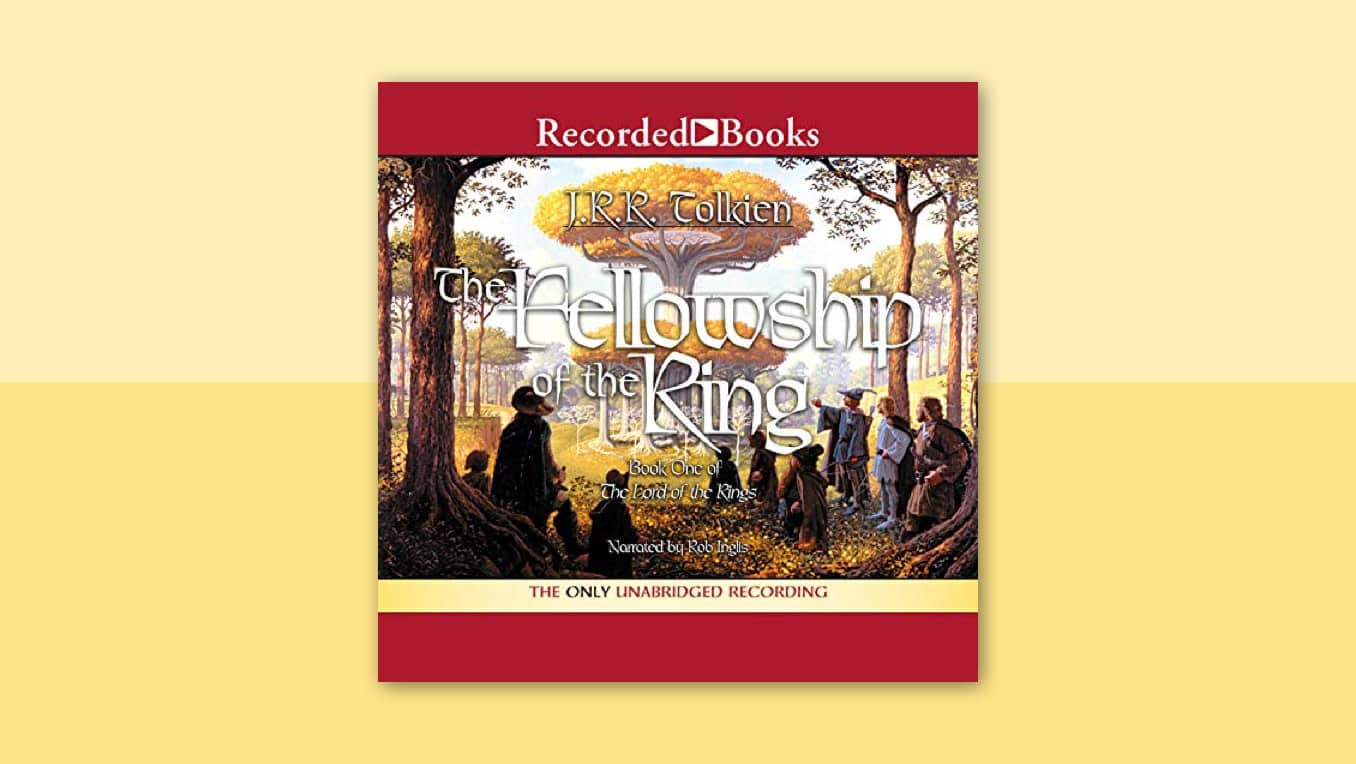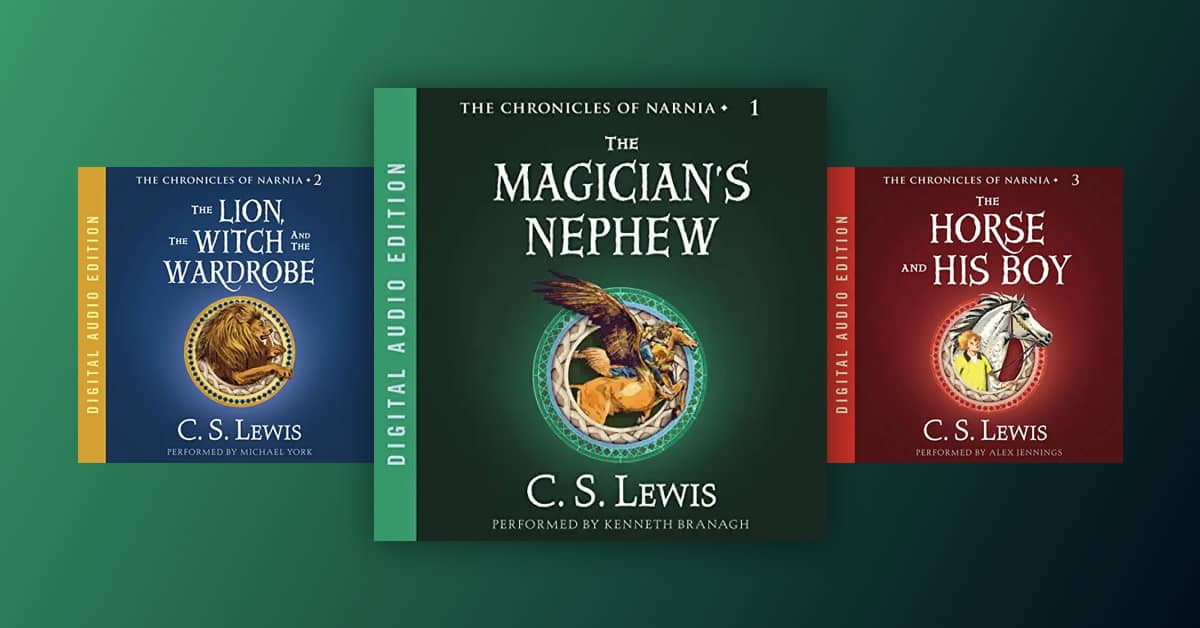This post was originally published on Audible.com.
You might know that fantasy giants J.R.R. Tolkien and C.S. Lewis were friends and contemporaries, but did you know they were part of a literary group of like-minded writers and scholars who met at Oxford University during the 1930s and 1940s? Read on to learn all about the Inklings and their continuing legacy.
Who were the Inklings?
The Inklings were a group of writers and scholars, mostly associated with Oxford University, who met each week to read and discuss each other's work through the 1930s and 1940s. The group was not an official literary society—they had no officers or elections, set rules, or formal meeting agendas. Instead, they were connected by their shared interest in narrative fiction and fantasy, philosophy, and Christianity. The members read aloud from their own unfinished work, offered each other critiques, and engaged in discussions about both their works-in-progress and writing and reading more broadly.
During the Inklings's heyday, monumental works such as Tolkien's The Lord of the Rings saga, C.S. Lewis's Out of the Silent Planet, and Charles Williams's All Hallows Eve were read aloud to members. Though the reading, sharing, and critiquing of unfinished work was the main objective, the Inklings also held jovial, rousing conversations and friendly competitions—such as who could read aloud from bad prose for the longest without giving in to laughter. The work of Irish writer Amanda McKittrick Ros often featured in these competitions.
How did the Inklings get their name?
The group's name was borrowed from a literary society established at Oxford in the early 1930s. This earlier group was made up of both students and dons, who met to discuss unfinished work. When that group's founder, Edward Tangye Lean, graduated from Oxford, the society dissolved. Tolkien and Lewis did not revive it but borrowed the Inklings as the name for their own informal literary gathering.
Where and when did the Inklings meet?
For most of the two decades during which the Inklings flourished, they met twice a week. On Thursday evenings, they gathered in C.S. Lewis's rooms at Magdalen College. On Tuesdays, they met at a local pub, The Eagle and Child, which was frequented by Oxford students and professors alike. Known informally as The Bird, the pub provided a public place for the Inklings to meet, often with friends who didn't always attend the Thursday meetings. The owner invited the Inklings to use his private parlor, providing them with some distance from the goings-on of the pub at large. The Eagle and Child is still best known for its association with Tolkien, Lewis, and the Inklings.
Who were notable members of the Inklings?
J.R.R. Tolkien and C.S. Lewis were at the heart of the Inklings and remain the group's most famous members. However, several other notable British writers, scholars, and academics were also involved. Many of them went on to publish books and have long literary careers. The Inklings also included more casual members—writers who would drop in occasionally but did not attend meetings regularly. The unincorporated, non-hierarchal nature of the group allowed for this kind of fluid membership.
J.R.R. Tolkien
It's hard to overstate J.R.R. Tolkien's influence on the literary world. His The Lord of the Rings Trilogy remains one of the most beloved fantasy epics of all time, and his legacy is nothing short of tremendous. Considered by many to be the father of modern fantasy, Tolkien remains unparalleled in his world-building and wield of language.
C.S. Lewis
Best known for his beloved fantasy series The Chronicles of Narnia, C.S. Lewis was also a literary scholar, academic, and Christian philosopher. The Inklings played an important role in his religious journey. After drifting away from faith as a young man, he returned to Christianity in his 30s, thanks in part to his friendship with Tolkien and conversations they had with other members of the Inklings throughout the 1930s. Faith is a prominent theme in all of his work.
Charles Williams
Charles Williams was a poet, novelist, playwright, critic, and publisher. He worked for the Oxford University Press from 1908 until his death in 1945. He's best known for his series of fantasy novels—War in Heaven, Descent into Hell, and All Hallows' Eve, among others—all of which are set in this world (as opposed to a made-up world like Tolkien's Middle-earth). Alongside Lewis, Williams is considered one of the most prominent 20th-century writers of Christian fantasy.
Owen Barfield
Owen Barfield was a philosopher, poet, and author. He was an active member of the Inklings and remained close friends with C.S. Lewis for the remainder of his life. Many of his ideas about language, metaphor, myth, and philosophy, first discussed in meetings of The Inklings, heavily influenced the work of both Lewis and Tolkien. While Barfield wrote novels as well as nonfiction, he is best known for his philosophical and critical works, including Poetic Diction and History in English Words.
Other members of the Inklings
Other members of the Inklings included Nevill Coghill, a literary scholar who published a modern/contemporary English version of Canterbury Tales; David Cecil, who published biographies and histories of influential British writers; and Dr. Robert Havard, the physician of both Tolkien and Lewis, who invited him to join the Inklings due to their shared literary interests. Havard was not the only doctor member of the Inklings. Ear, nose, and throat surgeon Dr. James Dundas-Grant also attended meetings sometimes, as did Catholic priest Father Gervase Mathew and historian R. B. McCallum. Though the group was a literary one, the Inklings attracted thinkers and philosophers from a variety of fields. Lewis's brother Warren and Tolkien's son Christopher also attended meetings regularly.
Listens to learn more about the Inklings
In the first comprehensive biography of the Inklings, Philip and Carol Zaleski paint a vivid picture of the group's four most lively members: Tolkien, Lewis, Charles Williams, and Owen Barfield. This audiobook makes a fantastic introduction for anyone curious about what went on during those meetings at Oxford—the arguments won and lost, the ideas wrestled with, and the unshakable friendships forged. Narrator John Curless strikes a perfect balance between imparting information and spinning a good story.
This is a thoughtful and fascinating history of World War I and its tremendous influence on J.R.R. Tolkien and C.S. Lewis. British historian and scholar Joseph Loconte traces the spiritual and creative journeys of both acclaimed authors, from young men who fought in the trenches to writers whose experiences of unfathomable loss spurred not only some of the greatest work of the 20th century but also a deepened commitment to their Christian faith. Dave Hoffman's clear, deep voice lends this audiobook the gravitas it deserves.
Oxford native Humphrey Carpenter was briefly acquainted with J.R.R. Tolkien and some of the other Inklings. In this riveting work of literary history, he invites listeners to share in the magic of those evenings spent in Lewis's rooms at Oxford. He highlights the deep friendships that formed between many of the Inklings, as well as the lively conversations about faith, morality, ethics, philosophy, and literature that informed the later work of many of the group's members. Narrator Bernard Mayes's engaging style makes it feel as if you're right there alongside Tolkien and his peers.
Though the fame of writers like J.R.R. Tolkien and C.S. Lewis often makes it feel as if the Inklings were some kind of lofty, untouchable society of geniuses, they were actually just a bunch of friends who got together to read and critique each other's work—a practice familiar to many writers today. This audiobook focuses on the friendships and creative collaborations among the group's members. Diana Pavlac Glyer explores the influence of the Inklings on classics like The Lord of the Rings and The Chronicles of Narnia. Using the Inklings as a jumping-off point, she delves into the merits of creative collaboration more broadly, looking at how discussion and critique can foster unique talent. Michael Ward's friendly, colloquial narration makes this a perfect listen for history buffs and aspiring writers alike.








